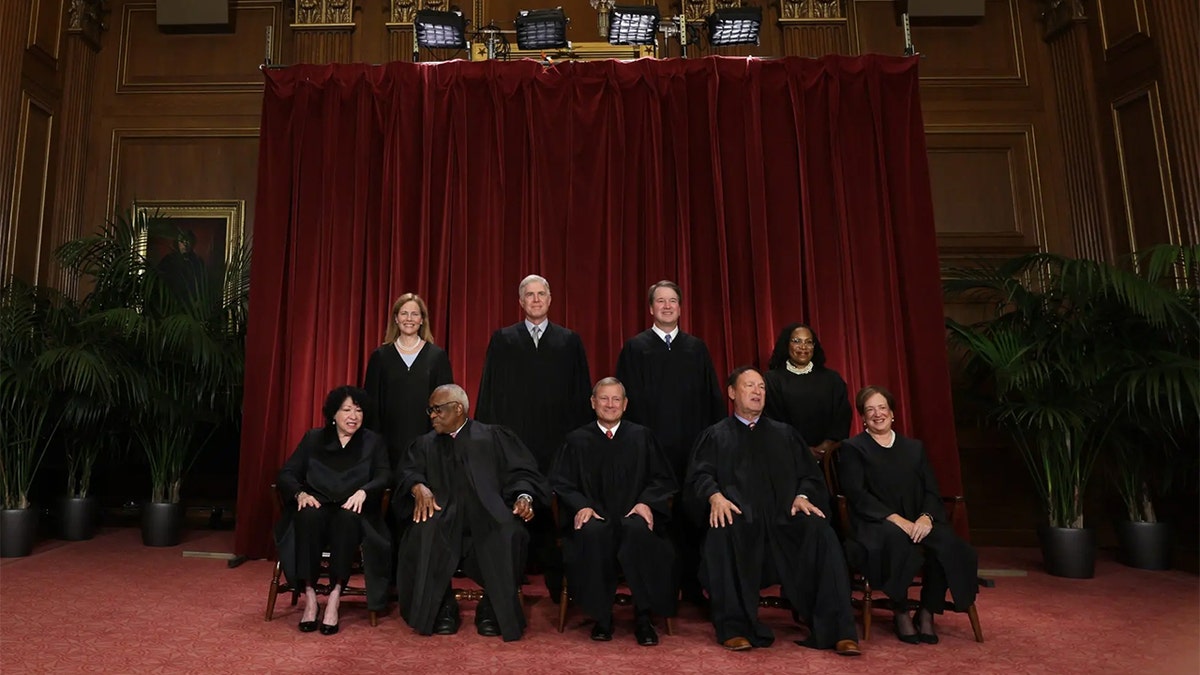Arizona sheriff torches Kamala Harris over border policy backtrack: ‘Continues to fail the American people’
Pinal County, Ariz., Sheriff Mark Lamb joins ‘The Faulkner Focus’ with reaction to Democratic presidential nominee Kamala Harris trying to backtrack on her border policies.
In a 5-4 ruling Thursday, the Supreme Court gave a partial victory to Republicans trying to enforce proof of citizenship when voting in Arizona.
The court was asked to allow enforcement of sections of Arizona law requiring documented proof of citizenship to cast a ballot in the presidential election, including when voting by mail.
The Republican Party of Arizona said on Aug. 15 that it had filed the emergency application pending appeal from the U.S. Court of Appeals Ninth Circuit "in support of HB 2492, our law requiring proof of citizenship to vote in presidential elections."

The Supreme Court gave a partial victory Thursday to Republicans trying to enforce proof of citizenship when voting in Arizona. (Alex Wong/Getty Images)
A federal judge had blocked enforcement of the law, which prompted the appeal to the high court for temporary relief.
"The Constitution gives states the power to set voter qualifications, and Arizona is leading the charge to ensure ONLY CITIZENS vote in our elections," the Arizona GOP tweeted. "This case has the potential to prevent non-citizen voting once and for all, which should have been the case all along."
An emergency application for stay by the Republican National Committee argues that voter integrity is a "problem" that’s gone unchecked, particularly with so many "illegal aliens" in the country.
When it came to ruling, Justice Thomas, Justice Alito and Justice Gorsuch would have granted the application in full, while Justice Sotomayor, Justice Kagan, Justice Barrett and Justice Jackson would have denied the application in full.
CLICK HERE TO GET THE FOX NEWS APP
Chief Justice Roberts and Justice Kavanaugh provided a compromise of sorts with their deciding votes.
The now-stalled 2022 state law requiring proof of citizenship was challenged by civil rights groups and the Arizona Democratic Party.
A 2013 Supreme Court ruling limited when states could impose such restrictions when voting in federal elections.






